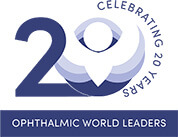OWL New Member Profile, Henry L. Trattler, MD
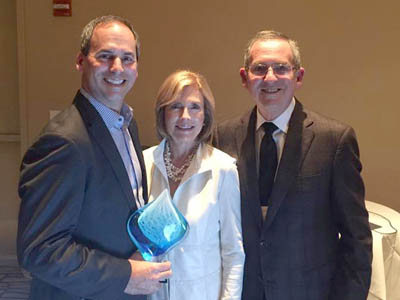
Henry L. Trattler, MD, Ophthalmologist and Founding Member of the Center for Excellence in Eye Care, and Former Lieutenant Commander (R) in the US Coast Guard, was interviewed by Bindu Manne, OWL Membership Committee Co-Chair, in early February 2017.
Bindu: Dear Dr. Trattler, welcome to OWL: Ophthalmic World Leaders! Each member has a unique and personal reason for joining the organization. What motivated you to become a member?
Dr. Trattler: I was always a believer in giving everyone an opportunity to excel in what they were doing. I thought it was inherently wrong to assume that women are not capable of doing the same job as men. I suspect that this is an attitude that was given to me early in my life as I grew up as a child during World War II where women were allowed to take the place of men who were off in Europe or Asia during the war. The women did a terrific job replacing the men. I applaud OWL’s original mission of advancing women in ophthalmology, and now, the updated mission of advancing diversity in leadership.
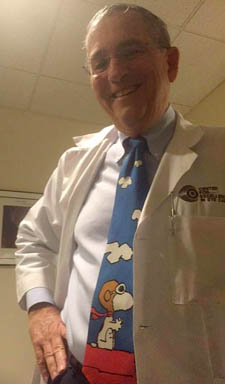 Bindu: You have been in practice for 45 years. You are a pioneer in the field of ophthalmology. Can you talk about what it was like for women in medicine or even ophthalmology when you first started your career, and compare it to the present environment?
Bindu: You have been in practice for 45 years. You are a pioneer in the field of ophthalmology. Can you talk about what it was like for women in medicine or even ophthalmology when you first started your career, and compare it to the present environment?
Dr. Trattler: I remember how hard it was for women to be allowed to become ophthalmologists. I do believe that Catherine Michon, MD, and Agnes Benjorn, MD, were the first women ophthalmology residents at the Jefferson Medical College (where I completed my residency program). They started training there one year ahead of me. They both were terrific! I was also very proud of my friend, Eve Higginbotham, MD, who became the first director of an ophthalmology department in the US when she became ophthalmology chair at the University of Maryland School of Medicine. Eve has had a fabulous career, going on the become Dean of Morehouse School of Medicine in Atlanta, then Senior Vice President for Health Sciences at Howard Medical School in Washington, D.C. and now as Vice Dean for Inclusion and Diversity at the Perelman School of Medicine at the University of Pennsylvania. If you take a look at the demographics now, it has changed dramatically. Currently, it would appear nearly 50 percent of ophthalmologists are women, and many are leading in the field of research, academia, podia presentations and consultancy collaborations.
Bindu: What do you think contributed to this increase in diversity in medicine?
Dr. Trattler: I think that as women were brought into the workforce during World War II, it was clearly demonstrated that women were capable of doing the same jobs as their male counter-parts. A perfect example was demonstrated by one of my patients who flew as a member of the Women Airforce Service Pilots (WASP)… Over a thousand young women did a great job of towing targets for the anti-aircraft gunners to practice and piloting new airplanes from the factories to the air basses both in the US and abroad. The famous aviatrix, Jacqueline Cochran, was the head of these operations. Cochran and the WASP women were all laid off in December 1944 as a large number of Army Air Corps pilots returned from the war in Europe. Women were no longer a part of the military operation until they were reinstated in 1947. Cochran was given the rank of Lieutenant Colonel. Today, women are even flying combat missions for the U.S. military.
Bindu: What is your best advise for a young ophthalmologist?
Dr. Trattler: You will have the joy of helping so many people in the future, so realize the privilege that being an eye care specialist gives to you. Always ask yourself how can we “continuously improve” in what we are doing? Don’t be satisfied or complacent.
Bindu: You work with your son, Bill Trattler, MD. What is that dynamic like in clinic or in the OR? Do you operate together? We’re curious!
Dr. Trattler: First, I must say that I married Marcia when I was a medical student, and she is a wonderful person who is sweet, caring, beautiful and very smart. She surely contributed a lot to Bill’s success. I was quite excited when Bill finally decided to pursue a career in medicine and especially him wanting to become an ophthalmologist. He was superbly trained and joined my large group practice after his corneal fellowship. For the first year he did not make any suggestions but then he said he wanted to get me “up to speed.” At first my associates were not sure how Bill would do, but they soon became aware of his talent. Soon he was teaching all of us the finer points of topography. His surgical skills are quite exquisite. He became a leader, nationally, in corneal cross-linking and in the development of femtosecond laser assisted phacoemulsification. He has reached out to help many ocular professionals. He continues to be a prolific writer in periodicals, journals and in his textbooks. He loves to organize professional groups and meetings. It’s always a great pleasure for me to be introduced as ‘Bill Trattler’s Dad.’ Although our examination areas are on opposite ends of our 13,000 square foot clinical floor, we find ourselves “dropping-in” on each other to discuss patients. Two and a half years ago, we got together to perform our femtosecond laser assisted cataract surgery as a team. We have performed over a thousand together. It is quite efficient and our patients really like their experience with us.
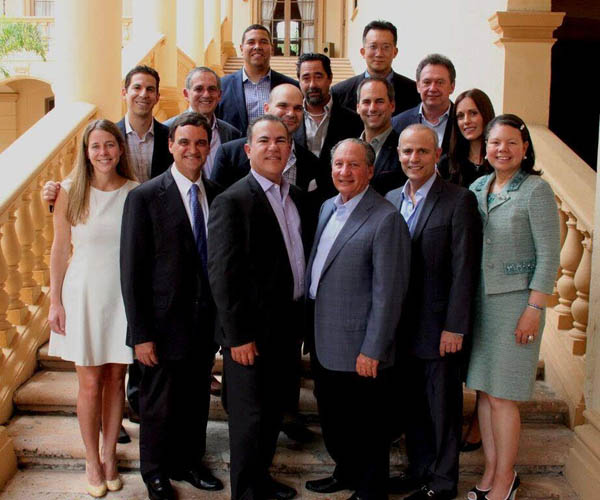
Bindu: Who is your favorite basketball team?
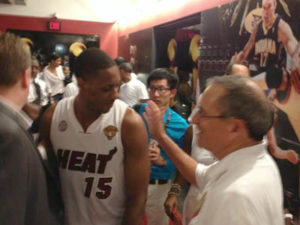
Dr. Trattler: I have been the Miami Heat NBA team’s ophthalmologist since the team was formed in 1988. Bill helps me in this endeavor, too. With each NBA Championship (3 in all so far), we proudly wear our rings. Hopefully, we can soon win another one so Bill’s sister, Meredith, can have her ring too. Go HEAT!
